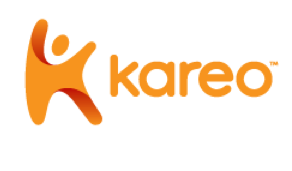Billing Software Company Kareo Raises $20.5 Million
 A recent report estimated that more than 80% of family physicians have adopted electronic health records to date. Of them, many chose to implement cloud-based EHRs and services this year, as opposed to locally-hosted technology systems. There are a few reasons for this. A lot of family doctors as well as other primary care physicians belong to small practices. They and their staff are the practice’s IT department, so it’s appealing that once they’ve set up cloud-based software, they don’t have to maintain it. That’s the vendor’s job. Also the practice usually doesn’t have to pay substantial upfront costs because many cloud services are subscription-based.
A recent report estimated that more than 80% of family physicians have adopted electronic health records to date. Of them, many chose to implement cloud-based EHRs and services this year, as opposed to locally-hosted technology systems. There are a few reasons for this. A lot of family doctors as well as other primary care physicians belong to small practices. They and their staff are the practice’s IT department, so it’s appealing that once they’ve set up cloud-based software, they don’t have to maintain it. That’s the vendor’s job. Also the practice usually doesn’t have to pay substantial upfront costs because many cloud services are subscription-based.
Kareo promises all of that minus the EHR. The company instead focuses on providing applications for small practices to better run their financial and administrative operations. Its software includes features like appointment scheduling, insurance eligibility verification and electronic billing. Kareo’s clients manage their clinical data using EHRs from Kareo’s partners like Practice Fusion, Quest Diagnostics, and WebPT.
Kareo just closed a $20.5 million equity investment led by new investor Stripes Group. The capital brings the company’s total funding to $38 million. Kareo CEO Dan Rodrigues said last March that the company had about 11,000 physicians using its software. Today there are more than 16,000 doctors using Kareo services, according to a company press release.
In this very specific cloud-based medical billing-focused field, Kareo is in company with SwiftPayMD. The startup gears its services toward mobile physicians who face complications getting paid because they work in an office in addition to at least one hospital. Both companies share the goal of making it easier for physicians to track and receive reimbursements so that they are accurately compensated.
SwiftPayMD CEO David LaBorde said his company once found that a large Chicago practice with an annual revenue of $180 million lost almost $4 million a year due to billing inefficiencies.


 Questions? Comments? Get in
Questions? Comments? Get in